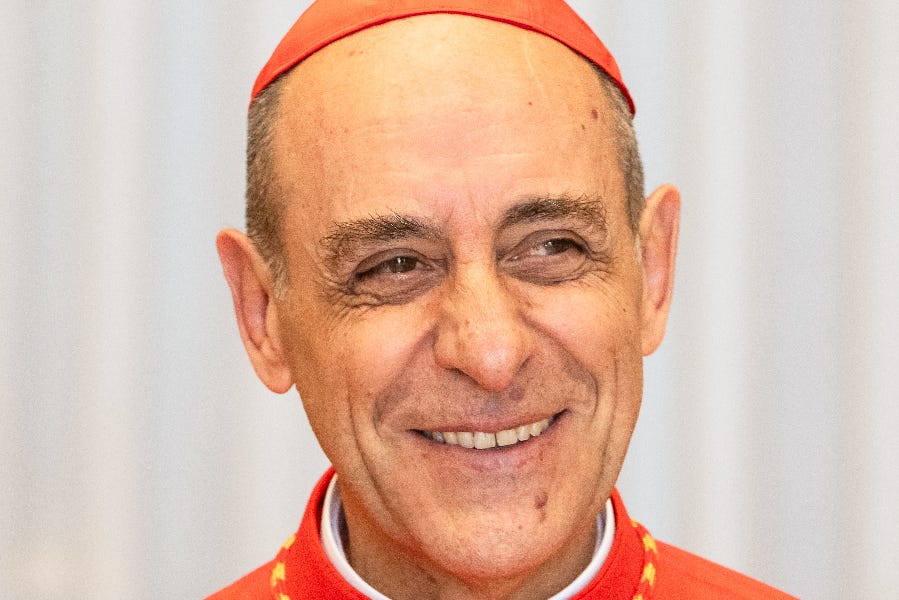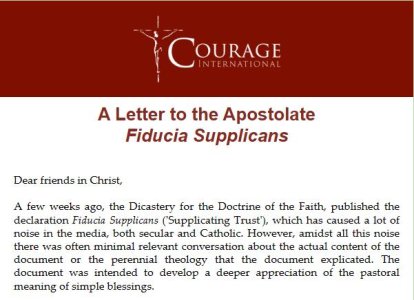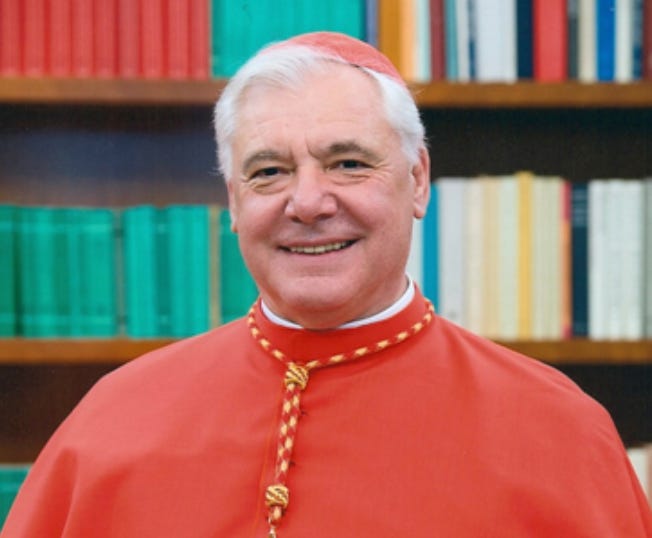While not (perhaps yet) "Dé fide défénítá," they are most certainly "sententia certa," if not "facta dogmata."
Already addressed in the post that you failed to address:
Well, no. That Gasser thought the Bishop of Meaux spoke well does not make anything sententia certa. Indeed, you have given no real argument for why you believe that papal indefectibility is sententia certa, and I am wondering if you are confusing Ott's claim about the indefectibility of the Church (which he does label sententia certa) with a claim about the indefectibility of the Pope.
If all these things are true – and they are surely so! – then we run into a problem if we have a Pope who, as St. Robert Bellarmine defines (to paraphrase) "...is able to err as Pontiff, and that even as a particular person he is able to be heretical, by pertinaciously believing something contrary to the Faith (indicating formal heresy)."
Yes, that is a problem, and it is exactly why Bellarmine said that a heretical pope would be
ipso facto deposed, and why Cajetan said that a heretical pope should be formally deposed by the Church. You should try actually reading Bellarmine. I linked to a new translation (
here).
No [one] believes in Pighius view, but St. Robert Bellarmine's.
I am convinced that you do not know the difference, as you avoid explication on this point at all costs.
No St. Robert Bellarmine's position, which is the position +Gasser (without "correction" from Bl. Pius IX) claims is being elevated to a dogma...
Let me help you here. Gasser is referring to Chapter II of
De Romano Pontifice’s Book 4, where Bellarmine states:
4) The fourth opinion is that in a certain measure, whether the Pope can be a heretic or not, he cannot define a heretical proposition that must be believed by the whole Church in any way. This is a very common opinion of nearly all Catholics. . . (
source)
Note that this has to do with whether a pope can define a heretical proposition. It has nothing to do with your concern about whether a pope can be a formal heretic. One need not define anything to be a formal heretic.
...or even in the ordinary Magisterium, he cannot bind the Church to error in either faith or morals in his authentic Petrine Magisterium.
This is false and had been refuted by Dr. John Joy (
link). Your counterargument from O'Regan is refuted by Scott Smith (
link).
The converse problem quickly becomes obvious: If it is true that the Pope actually can teach error in faith & morals by way of his ordinary Magisterium, then it would mean that the Pope is capable of binding the faithful to heresy or immorality in the ordinary Magisterium. This destroys the Indefectibility of the Church, for, again, the Church would not longer be what she is constituted and established as being. This is precisely because the teachings found in the ordinary or authentic Magisterium, while usually reformable of themselves, and thus also non-definitive in nature, are obviously why they are regarded as non-infallible. Nevertheless(!), it is immemorial Catholic teaching that the level of assent required of even these teachings is that of the submission of the will and intellect in obedience to the ordinary Magisterium. Submission to heretical error, immorality, etc. means a defectible Church. No longer a city on a hill.
A distinction must be made between the teaching of heresy and the teaching of error:
Can Dr. Fastiggi then prove, beyond doubt, that the SENSE of the phrasing in the “never-failing faith” given to Peter and his successors is, instead, an absolute protection that prevents them from ALL error in matters of faith and morals? That is, that there is no possibility that the phrase is meant to allow for some similar sort of qualification, limitation, or reservation comparable to how Christ’s protection of the Apostles still allows their successors to err?
And to make that question more pointed: one of the commonly proposed qualifiers to the protection offered to the popes is that they will never fall into the formal sin of heresy, i.e. of obstinate denial of some truth which must be believed with divine and Catholic faith, and that this is meant to leave room for the pope to err in two ways: (1) holding (and teaching) an error about a matter that is either (a) not yet defined, or (possibly) (b) is defined but only as a truth that is “to be held” and not is not “to be believed with divine and Catholic faith”, or (2) by holding (and teaching) an error that is the matter of formal heresy, but not holding it obstinately, and when the error is pointed out, he reverses course and holds the truth. Arguably, (under this view), a pope’s “never failing faith” is that he never suffers in his soul the sin of heresy by which his faith fails and he departs from union with the Church. A person can be in the state of grace (and have living faith) but be in error on a matter of faith, through mere ignorance of Church teaching – and this both Bellarmine and the Gasser expressly left room for in the pope’s case. (Smith)
Yet, let's play Devil's Advocate for a moment: Let's say Pope Francis has bound the entire Church to a heretical teaching through, say, Amoris Laetitia, or whatever have you.
According to Bellarmine he would be
ipso facto deposed from the Petrine office. Bellarmine protected the office, not the person. He thought that they could be separated in the (unlikely) case of a heretical pope.
But if that occurs (as it should given Catholic doctrine & praxis), then a serious problem arises.
Of course a serious problem arises. That's why this is such a protracted issue. But theologians like Bellarmine and Cajetan did not bury their head in the sand because a serious problem could arise. Bellarmine would never countenance your bizarre idea that, no matter how much a pope's utterance might appear to be heresy, it simply can't be heresy, because we know
a priori that it could never be heresy. Again, I would invite you to actually read Bellarmine if you disagree.
The entire preservation of the Indefectibility of the Catholic Church rests on the inability of her or her sacred hierarchs acting sub Petro et cum Petro to teach error in faith and morals in the ordinary Magisterium.
And Catholic theology is agreed that a heretical pope either would be deposed or should be deposed. Vatican I says nothing to the contrary, nor does Bellarmine. Your sources do not support your position.
No, obviously this Divine assistance is primarily given to ensure the Indefectibility of the Church. That she remains truly the Sacrament of Salvation for the world. Therefore, the Divine assistance which prevents serious error in faith and morals is first elicited out of God's promises of the Indefectibility of His Church. This is precisely why the Church can be so bold as to enjoin submission of will and intellect on things that are not irreformable, nor (in some cases) even prudent. Why? Because the Holy Spirit ensures there is no substantive danger to the Church's constitution through the teaching of substantive errors of either faith or morals.
I would suggest a re-read of the book of Revelation. Your idea that everything will always be hunky dory on the part of the Church may need a bit of an adjustment.
Well, I think I've spent quite enough time on this.
So do I.
You are a layman. Stop resting on laurels that you don't have.
, in constantly explaining what should be basic Catholic catechesis...
The nuances of Gasser's
relatio and arguments between academic theologians are not basic Catholic catechesis, and that's good news for you given the many errors of the OP.
This, especially, when sophists are incessantly raving these facile & ridiculous ecclesiological perspectives that disrupt the peace of the faithful.
There are bigger fish to fry that re-hashing what should be evident to all the orthodox Catholics of East & West. Namely, saving souls!
Get over yourself.

Stop pretending to have authority you do not. Stop pretending complex issues are simple. Stop pretending that you understand this topic. Good intentions only go so far.




